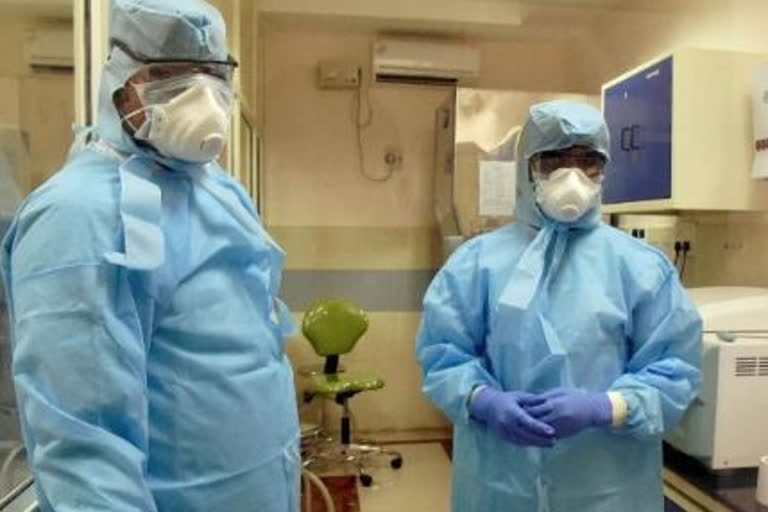Hyderabad:In order to protect the doctors, nurses and other health workers during the outbreak of an epidemic, the Union cabinet Wednesday approved and notified a new law that provides for a maximum jail sentence of seven years and fine of Rs 5 lakh. It also has provision for a swift investigation, speedy trial and mechanism for recovery of damages from offenders.
The speed with which it was drafted, approved and notified shows the sense of the urgency on the part of authorities as they struggled to prevent increasing attacks, harassment and social discrimination against doctors, nurses and other health workers who are at the forefront of the country’s battle against highly deadly novel coronavirus.
The SARS-CoV-2 virus has killed 686 people in the country and more than 1.86 lakh people across the globe in less than four months.
The need for a new stringent law
The provisions of prosecuting the offenders under section 188 of the Indian Penal Code were considered ineffective by the government in preventing attacks and harassment of health workers.
What section 188 of IPC says?
Section 188 of IPC provides for imprisonment of one month and a fine of Rs 200, or both for defying directions of the government.
However, if the defiance of a government order by an offender caused danger to human life, health and safety of others then the jail sentence could extend to six months and fine to a maximum of Rs 1,000, or both. However, these provisions failed to curb the attacks on health workers.
The Union government decided to amend the 123 years old Epidemic Diseases Act of 1897 by way of an ordinance to deter attacks on healthcare workers.
Definition of violence in the new law
Section 3 of the new law goes beyond physical violence and gives it a wider meaning. It includes any kind of harassment that will affect the living or working condition of healthcare service personnel or even prevent them from discharging their duties.
It also covers any kind of harm, injury, hurt, threat or even danger of hurt to health workers both at hospitals and clinics and outside these places. In effect, in terms of geographical coverage, the new provision covers all the above-mentioned offences and harassment to health workers regardless of the place of incident.
It is not only violence or harassment of health workers, but the stringent provision will also apply if anyone tries to prevent them from discharging their duties.
Also read:Coronavirus: IUST develops Ruhdaar, a low-cost ventilator
Causing damage to health worker’s property
The new law will not only cover violence or harassment against health workers, but it will also cover those offences where their property or clinic is damaged or vandalised. This provision not only covers property but it also covers documents in the custody of health workers.
Who is a healthcare personnel under the new law
The Union government has opted for a liberal meaning of health workers in the new law.
The law covers any healthcare service personnel who may come into contact with a patient and is at risk of being impacted with the disease while carrying out his duties in relation to his epidemic related responsibilities.
It means that any health worker in the private or public sector, including doctors, nurses, paramedics, community health workers like ASHA or Anganwadi workers and others will be protected by the law.
The law also authorises States to declare any class of persons as health workers by issuing a notification in the official gazette.
Property under the new epidemic law
Unlike section 188 of the Indian Penal Code, the new law covers damages caused to property of a health worker with the provision of recovery of compensation from offenders.
Under the new law, a property means a clinical establishment as defined in the Clinical Establishments (Registration and Regulation) Act of 2010, or any facility used for quarantine and isolation of patients during an epidemic.
The definition of the property also includes mobile medical units and any other property in which a health worker has a direct interest in relation to the epidemic.
However, the new law does not expressly cover the individual property of doctors, nurses and other categories of health workers. But they may be able to avail of the protection and recover damages if they can prove that they had a direct interest in the property in relation to the epidemic.
The government has not assigned new meanings to terms like violence, public healthcare professional or property but it has decided to use the existing meaning of these terms in earlier laws, including some British era laws.
Also read:Mamata accuses governor of transgressing constitutional dharma
Powers to inspect vehicles & persons
The Union government has significantly expanded its powers to inspect any vehicle, vessel or person within the country, or arriving at or departing from any of the seaport, airport or land port.
